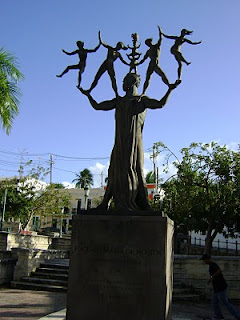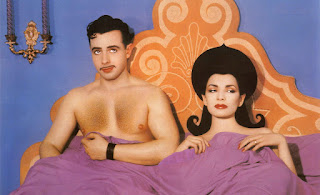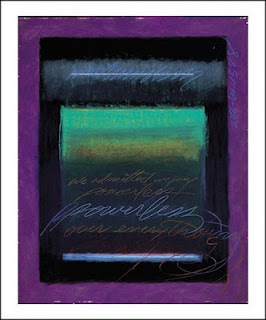¡Hola! Evertybody...
The following was taken from a talk by one of my s/heros,
Aurora Flores. Journalist, educator, activist and swinging musician (her band,
Zon del Barrio rawks!), I always enjoy her contributions. Today she pays tribute to one of the greatest Latin@s ever, Eugenio Maria de Hostos (she’s his great grand niece). This man’s vision and work still reverberates throughout the world.
* * *

-=[ Eugenio Maria de Hostos: Educator, Writer, Patriot ]=-
By Aurora Flores (great grand-niece of Hostos)
Remarks written & delivered at the 30th Anniversary Celebration of the Founding of Hostos Community College: March 25, 2006 (click here for audio)
“Ideals that take days to conceive, mature over centuries of struggles,” wrote Eugenio Maria de Hostos in the late 1800s. One of the most distinguished and illustrious men in Puerto Rico’s history, Hostos was known worldwide as educator, humanist, abolitionist, feminist, philosopher, writer, politician and above all an early advocate of self-government for Puerto Rico. A Renaissance man of the Caribbean with a clear, liberal, international and pragmatic mindset, he educated an entire continent and was called “Citizen of America.” He advocated for a Federation of the Antilles embracing Puerto Rico, Cuba, and the Dominican Republic and devoted his life to seeking the political independence of Cuba and Puerto Rico.
His many essays, articles and books reflect his philosophy on social justice, political science, virtues and moralities for social reform and advocacy. He was an important advocate for the abolition of slavery, the rights of Chinese laborers in Peru and the higher education of women in law and science in Chile playing an important role in reforming the educational system for women throughout Latin America. He established the first teacher’s colleges and advanced methods for teaching throughout the Caribbean, in particular the Dominican Republic. He was known throughout Latin America as a publicist of civic reforms, a rationalist in ethics who believed that “to be civilized and to be moral is the same thing.” And as a writer of graceful and didactic prose.
Eugenio Maria de Hostos y Bonilla was born on January 11, 1839 in the village of Rio Cañas near Mayaguez, Puerto Rico. He was the first of the Ostos family originating from Spain and settling in Cuba to be born in Puerto Rico. First educated in San Juan, he was sent to Spain at 13 to study at the Institute of Higher Education in Bilbao earning a law degree at the University of Madrid. As a student in Madrid, he became interested in politics. While studying law, he wrote newspaper and magazine articles on the need for autonomy for the Spanish West Indies.
He distinguished himself as an essayist and orator in the movement to abolish the slave trade with Africa and to liberalize colonial rule. Already he had conceived the hope that Spain’s territories in the Antilles might be confederated as an independent republic.
He joined the Spanish Republicans because their leadership promised autonomy for Cuba and P.R. To express that hope, he wrote the first of more than 50 books, the allegorical novella La Peregrinación de Bayoán in 1863, describing the voyage to Spain by the Arawak leaders of Puerto Rico, Cuba and the Dominican Republic advocating independence and self governing autonomy for these island nations. When the republicans triumphed over the monarchy three years later in 1869, Hostos’ hope for peaceful change was dashed when the new Spanish constitution left colonialism firmly in place. After realizing the betrayal, he refused the post of Governor of Barcelona and headed for New York.
Once in N.Y., Hostos joined the Puerto Rican Section of the Cuban Revolutionary Party organized by Cuban poet and patriot Jose Marti becoming editor of a "La Revolución," the journal of the Cuban revolutionary movement. He was joined here, with his ideas embraced by, Ramon Betances, leader of the "1868 Grito de Lares" uprising along with Segundo Ruiz Belvis. Here Hostos advanced his formula for an independent Antillean Confederation with a base in Cuba, Puerto Rico, Haiti, the Dominican Republic and Jamaica.
However he was also disappointed that in Cuba and P.R. there were many who wanted their independence from Spain but who did not agree with the revolutionary ideals. Instead, they preferred to be annexed by, and become a part of, the U.S.
Three years later he embarked on a tour of South America to promote the ideals of a united Antellano Federation, recruit support and raise funds for this liberation movement. He traveled within the U.S. France, Colombia, Panama, Peru, Chile, Argentina, Brazil, Venezuela, St. Thomas, the Dominican Republic, Cuba and P.R. And although he had come from a family of privilege, wherever he traveled, he lived humbly among the people and the leaders he was cultivating.
In Peru, he helped to develop the country’s educational system and spoke out against the harsh treatment and exploitation of the Chinese immigrants.
In Chile, he championed the cause of women’s education, particularly in law and medicine.
Hostos arrived in Chile in December of 1871. As professor at the University of Chile he gave a speech titled “The Scientific Education of Women” proposing that the government permit women into their colleges.
He immediately began a controversial campaign of lectures and essays defending the women’s right to education observing and comparing the plight of women as: “…a plant that vegetates without a clue of its existence.” (“Es una planta que vegeta, sin una conciencia que conoce su existencia.”) Hostos turned it around on the men claiming that, “If women are charged with the upbringing of our children, how can they teach those children and develop their intellectual and mental capacities if she does not know how to direct her own life.”
Hostos went on to condemn the educational system in Chile with respect to women by pointing out the following:
“They have taught her to read so that she can read ‘novellas.’ Sometimes she reads novels of religion, sometimes she seeks refuge in the religion of the novel; she has been taught to write so that she may write the novel of her love in the stereotypes from the most stupid teachers who happen to be at hand; she has been taught to pray so that her lips may mechanically evoke what her conscious mind fails to understand; she has been taught to work so that she may do the same work mechanically every day; she has been taught to sing in order to enhance her attractiveness; she has been taught to play the piano all her life, to accompany the dancing of those who are fit only to dance; she has been taught to mistreat a foreign tongue so that she can forget or abuse her own; she has been taught to draw so that she can embroider to perfection or occupy her periods of boredom with the ideal of a man whom she cannot find around her.
Woman have been reduced to the level of a two-legged animal that procreates its kind, that feeds its offspring from its breasts, that sacrifices to the life of the species its own individual existence.”
He went on to reason with the male educators saying: The only thing needed for education is intellectual capacity and the exercise of reason: Reason has no gender, no sex, “La razon no tiene sexo.” It is the same faculty in men as in women operating and functioning precisely in the same manner. (“Y es la misma facultad con sus mismas operaciones y funciones en el hombre y en la mujer.”) If a man can recognize truth through the use of reason, so can a woman. In short, if a man is capable of higher learning, so are woman.
Soon after, Chile allowed women to enter its college educational system.
In Argentina, he campaigned for the construction of the first trans-Andean railroad that, when built, was named in his honor. In Brazil, as correspondent for the Buenos Aires journal La Nación, he wrote a series of articles on the country’s natural history.
After a brief return to New York in 1874, Hostos continued his travels first to the Dominican Republic where he founded the first college for teachers implementing advanced teaching techniques before going to Venezuela where, in 1877 he married the Cuban-born Belinda de Ayala. P.R. poet Lola Rodriguez de Tio, was their maid of honor.
Hostos’ career as an educator began in 1879 when he established himself in the Dominican Republic as founder and director of that country’s first teachers college. First son Eugenio Carlos was born during this year.
For the following nine years Hostos worked intensively to reform the educational system in D. R. often undertaking on his own the writing of the textbooks used. By 1881, his first daughter Luisa Amelia was born followed by the birth of his second son, Bayoan Lautaro in 1882. In 1887 son, Adolfo José was born as the first graduates of the Dominican Teacher’s College were inducted as alumnus of the “Instituto de Señoritas” led by Salome Ureña de Henriquez. The following year Hostos creates the Night School for the Working class: “La Escuela Nocturna para la clase obrera.” He writes his classic book, “Moral Social.”
At the request of President Balmaceda of Chile, Hostos moved to Santiago in 1888 along with his wife, his children, Eugenio Carlos, Luisa Amelia, Bayoan and Adolfo who were born in D.R. He traveled to Chile via Panama and Curazao.
Hostos became the Chair in Constitutional Law at the University In Chile and undertook another nationwide project in pedagogical reform. His pilot school became one of the leading educational centers in Latin America. While in Chile, his son Filipo Luis Duarte was born in 1890.
Hostos returned to Cuba in 1895 to take part in the renewed struggle for independence. In 1898, he returned to New York and founded the “Liga de Patriotas” where he was named president. He then traveled with a delegation of Puerto Rican leaders including Julio J. Henna, Manuel Zeno Gandia and Rafael del Valle to Washington, D.C. to argue with President McKinley for the independence of Puerto Rico. Again, Hostos’ hopes were squashed as the United States government decided to retain Puerto Rico as a territory.
He returns to P.R. just long enough to establish “el Instituto Municipal” in Mayaguez.
Shortly thereafter, the Dominican government called him to reorganize the public education system of the island.
Hostos returned to the Dominican Republic in 1900 as director of the Central College and General Inspector of public education. He continued to play a major role in reorganizing the educational and railroad systems until his death on August 11, 1903 at his home in Las Marias, Santo Domingo where he remains buried in the Panteon Nacional until, as he requested, Puerto Rico is independent.
He wrote his own epitaph that says: “I wish that they will say that in that island Puerto Rico a man was born who loved truth, desired justice and worked for the good of mankind.”
In 1938, the 8th international Conference of America celebrated in Lima, Peru posthumously paid tribute to Hostos and declared him ”Citizen of the Americas and Teacher of the Youth.” Puerto Rico declared his birthday an official holiday. There is a monument honoring Hostos in Spain. In P.R. there are two monuments dedicated to Hostos, one in his native city of Mayaguez, created by renowned sculptor Tomas Batista and another in San Juan created by Jose Buscaglia Guillermety. In NY there is the Eugenio Maria de Hostos Community college of the City University of NY.
Hostos’ voluminous body of writings includes critical studies of Hamlet; Romeo and Juliet; An Historical Description of Puerto Rico; Lessons in Constitutional Law; Reform of Legal Education; Science of Pedagogy; Administrative Decentralization; Project for a General Law of Public Education; The Scientific Education of Women; Sociology and Social Ethics.
* * *
¡Despierta Boricua!
My name is Eddie and I’m in recovery from civilization...
![[un]Common Sense](http://3.bp.blogspot.com/-SHkSXUux500/TmHfh9LEe_I/AAAAAAAABwM/Z6tn2-Pe7z4/s1600/connexion-top_%2B002.jpg)










![[un]Common Sense](http://feeds2.feedburner.com/blogspot/eNJe.1.gif)